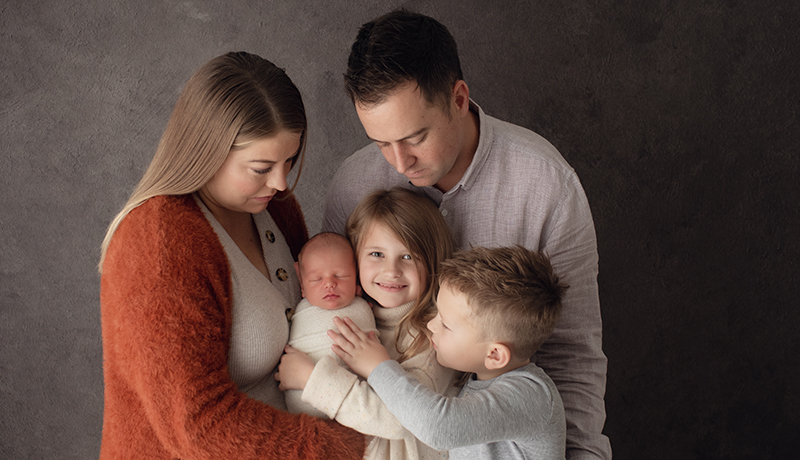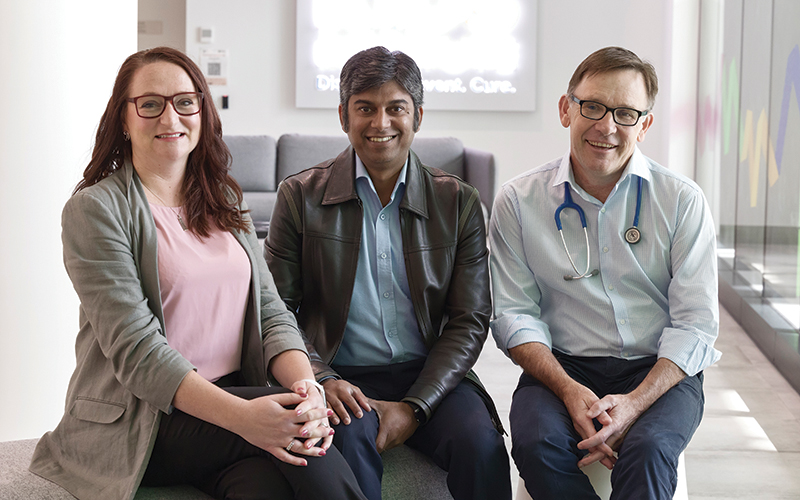Search
Research
Immune Development in Early Life (IDEaL) longitudinal cohort study protocol: Identifying biomarkers of vaccine responsiveness, respiratory infection, and asthmaEarly-life immune development is a critical factor in predicting the risk of childhood respiratory infections, asthma, and poor vaccine responses. Identifying immune endotypes that predispose children to these conditions could lead to the development of predictive biomarkers and early interventions, potentially improving long-term health outcomes.
Research
The Lancet Child & Adolescent Health Commission on the future of neonatologyJane Pillow BMedSci (Dist) MBBS, PhD (Dist) FRACP Research Theme Head, Early Environment; Team Lead, Chronobiology jane.pillow@thekids.org.au
Research
Diaphragm Function in Very Preterm Infants at 36 Weeks' Postmenstrual AgeUnderstand how bronchopulmonary dysplasia (BPD) and antenatal and postnatal factors influence diaphragmatic functional effectiveness in very preterm infants.
Research
Long-Term Outcome of Young Infants With Suspected Neuroblastoma following Observation as Primary Therapy: A Report From the Children's Oncology GroupSeveral studies have established that patients with localized perinatal neuroblastoma can be safely observed; however, long-term outcomes have not been previously reported. We evaluated long-term outcomes of infants with suspected perinatal neuroblastoma enrolled on the Children's Oncology Group ANBL00P2, which included an expectant observation approach.
Research
Back to the future: A call to generalism in psychiatryProviding a sustainably resourced medical workforce to meet the healthcare needs of a population is a significant challenge. Drivers of medical workforce issues include an ageing population, increasing chronic disease, skill shortages and workforce maldistribution. In this paper, we consider the imbalance between generalism and specialism in Australia, arguing that generalist positions may better address the current healthcare gaps.
Research
Efficacy and Safety of Epicutaneous Immunotherapy in Peanut-Allergic Toddlers: Open-Label Extension to EPITOPEThe pivotal phase 3 EPITOPE trial, a 12-month, double-blind, placebo-controlled study of epicutaneous immunotherapy with the VIASKIN patch containing 250 μg of peanut protein (VP250), previously reported significant treatment response versus placebo in peanut-allergic toddlers aged 1 through 3 years.
Research
Trimodal skin health programme for childhood impetigo control in remote Western Australia (SToP): a cluster randomised, stepped-wedge trialSkin infections affect physical health and, through stigma, social-emotional health. When untreated, they can cause life-threatening conditions. We aimed to assess the effect of a holistic, co-designed, region-wide skin control programme on the prevalence of impetigo.

Video technology is helping researchers learn more about the earliest features of autism, and in turn is helping families gain access to better interventions.

A bold research program is working to give young children lifelong protection against influenza

Despite respiratory syncytial virus (RSV) being the leading cause of hospitalisations in the first year of life, there is currently no routine preventative option for otherwise healthy babies.
